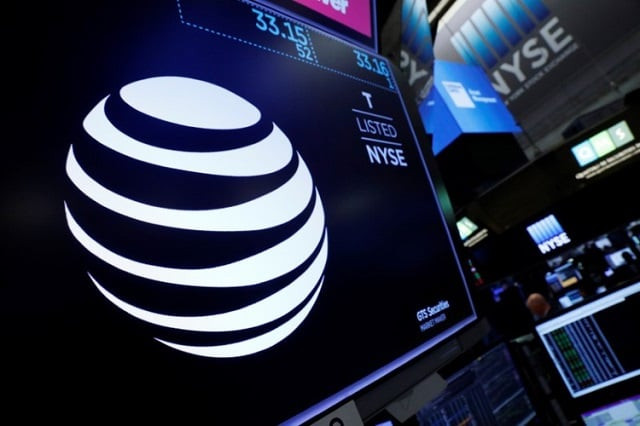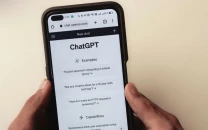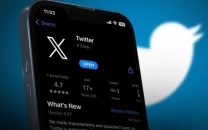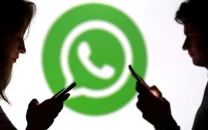US telecom regulator approves T-Mobile/Sprint merger
The Federal Communications Commission cleared the $26 billion

The AT&T logo is seen on a monitor on the floor of the New York Stock Exchange (NYSE) in New York City, US June 13, 2018.
PHOTO: REUTERS
The Federal Communications Commission cleared the $26 billion deal three months after approval by antitrust officials at the US Justice Department.
The 3-2 FCC vote is conditioned on the divestment by Sprint of its prepaid division Boost Mobile to the satellite broadcast group Dish, which will begin building a new national wireless network.
Backers of the deal say combining T-Mobile and Sprint will create a strong number three US wireless carrier behind Verizon and AT&T, with the resources to invest in 5G, or fifth-generation, networks.
Radiation threat: Cellular towers could have harmful impacts
"The transaction will help secure United States leadership in 5G, close the digital divide in rural America, and enhance competition in the broadband market," said FCC chairman Ajit Pai.
Critics claim, however, it will reduce choices for American consumers and ultimately lead to higher prices.
Voting against the deal, FCC commissioner Jessica Rosenworcel said it will result in three firms controlling 99 percent of the wireless market.
"By any metric, this transaction will raise prices, lower quality, and slow innovation, just as we start to deploy the next generation of wireless technology," she said in a statement.
"We've all seen what happens when market concentration increases following a merger."
Pai maintained that in a dynamic market, a decision should not be based on "a simplistic, backward-looking claim that doesn't capture the reality of today or tomorrow."
He also noted that in some areas of the country, the number of carriers would increase from two to three.
The companies have said they would not finalise the deal until an antitrust challenge from more than a dozen US states is resolved. They anticipate a closing sometime next year.
The FCC said T-Mobile and Sprint have committed to deploy 5G service to cover 97 percent of US customers within three years, and 99 percent within six years.
Dish Network, which operates the satellite and other pay-TV systems, has pledged to deploy a 5G broadband network capable of serving 70 percent of the US population by June 2023.
The dish will get the wireless spectrum to be divested in the deal as well as the prepaid Sprint operations and will also use some of the wireless capacity of T-Mobile and Sprint.
Phillip Berenbroick of the consumer group Public Knowledge said regulators from the FCC and Justice Department used tortured logic in approving the deal while seeking to create a viable fourth carrier to preserve competition in the market.
Met office turns digital with mobile phone app, YouTube channel
"Instead of simply rejecting the deal and betting on competition to benefit consumers, the DOJ and the Commission imposed convoluted behavioral conditions that are ultimately unlikely to remedy the identified harms," Berenbroick said in a statement.
"That outcome would leave consumers to bear the consequences."
The merger announced in April 2018 would bring together T-Mobile, controlled by Germany's Deutsche Telekom, and Sprint -- a subsidiary of Japan's SoftBank -- with more than 100 million customers.
Under the plan, T-Mobile chief executive John Legere would hold that role at the combined company.











1733130350-0/Untitled-design-(76)1733130350-0-208x130.webp)







COMMENTS
Comments are moderated and generally will be posted if they are on-topic and not abusive.
For more information, please see our Comments FAQ